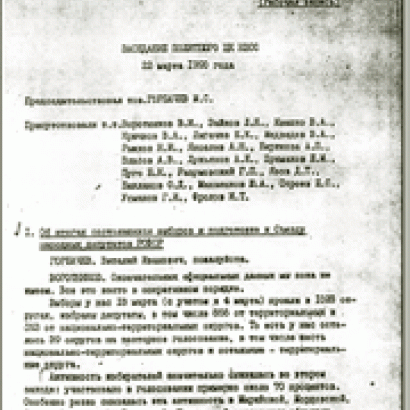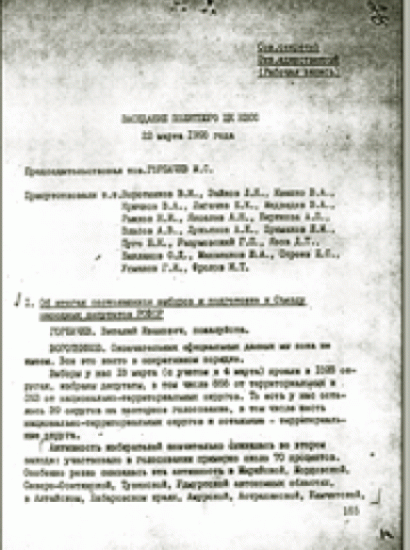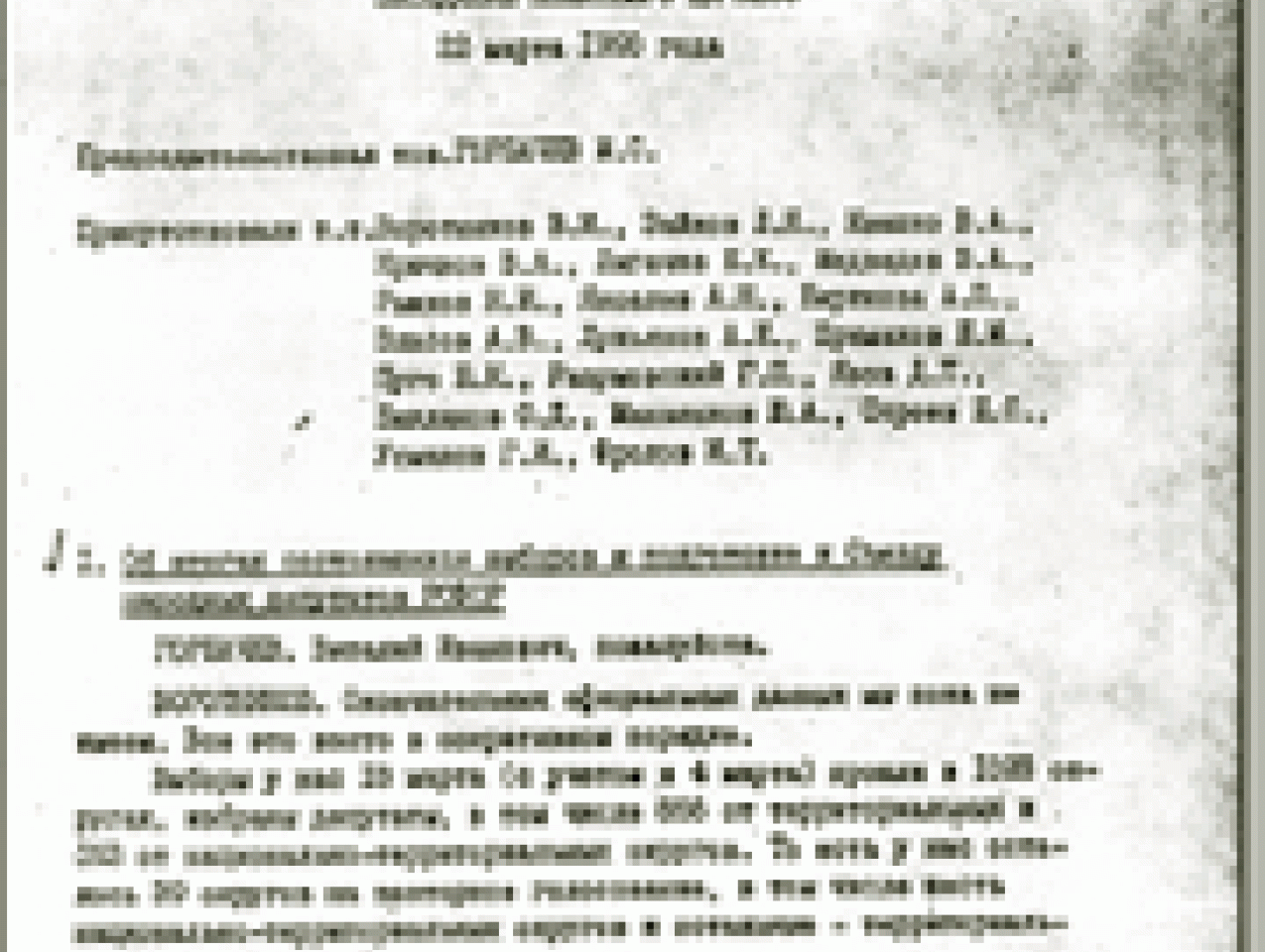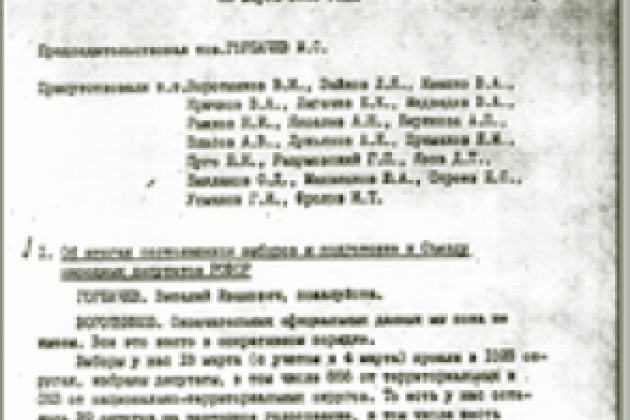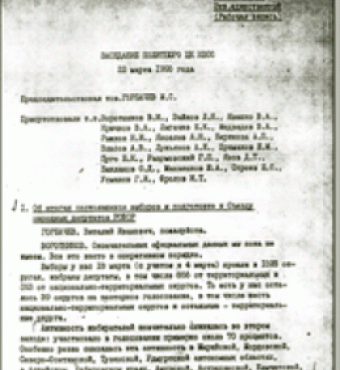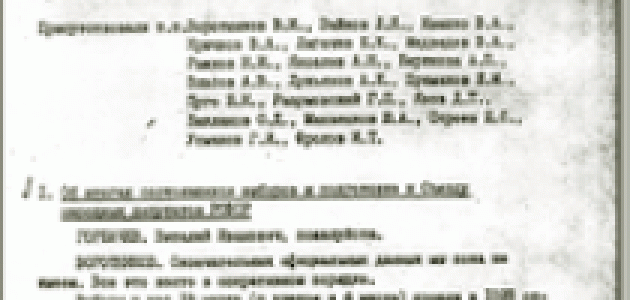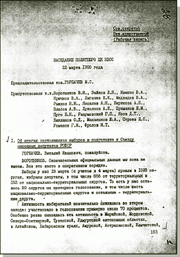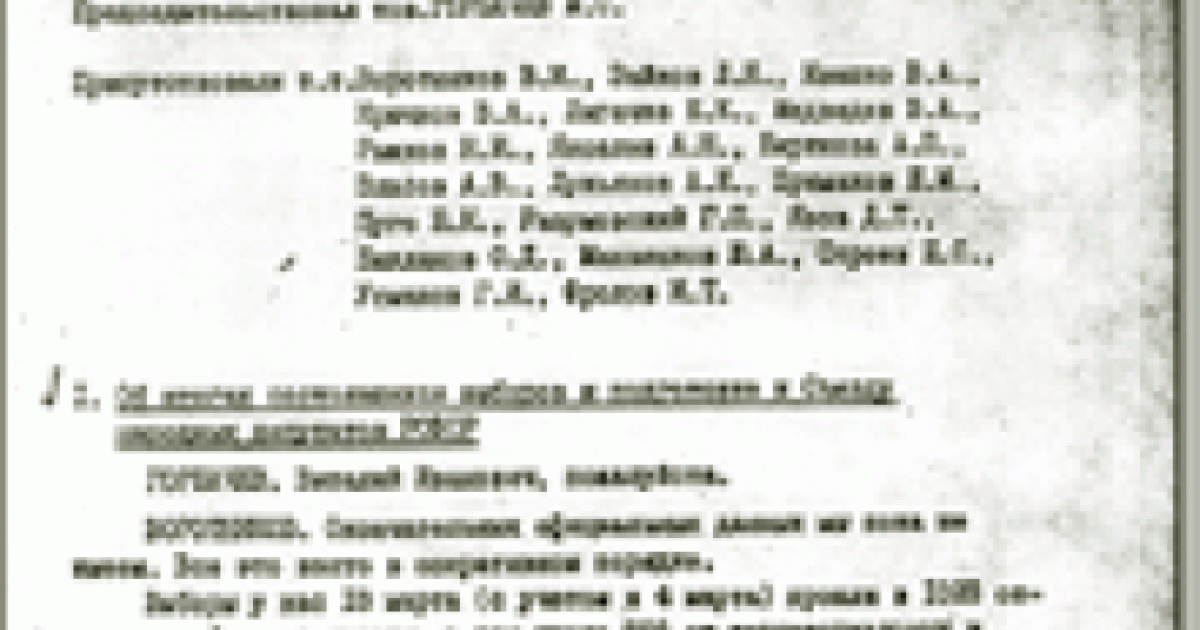- US
- Contemporary
- World
- History
Over the past few years the Hoover Institution has been engaged in a major effort to salvage and collect documents from the Archives of the Soviet State and Communist Party of the Soviet Union. These archives represent an extraordinary collection. It is an understatement to say that the existence of the USSR shaped this century and that its death is shaping the beginning of the next. Given the uncertainty of the political situation in Russia, the effort to microfilm and collect these documents amounts to more than merely providing Western scholars with access to previously secret records. It amounts instead to salvaging a record of a human experience that has profound lessons for all time to come--that stands as a permanent warning to all who might be tempted to sacrifice political and economic freedom.
The Hoover Institution has so far managed to microfilm 9 million pages of documents relating to virtually every Soviet state and social institution and covering the entire Soviet epoch. The documents include records from the secret police (NKVD), the party Politburo and Secretariat, state and party control committees, and various state ministries. One fond (or group of records)
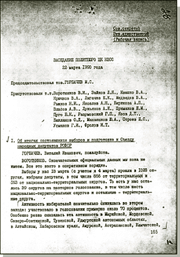
from the NKVD, fond r-393, includes 2,348 document groups (441 reels) from the State Archive of the Russian Federation, covering secret police activity from the founding of the Cheka in 1918 through the Great Terror under Stalin. Fond 6 from the Center for the Preservation of Contemporary Documentation on the Communist Party's Control Committee, the top party disciplinary organ, includes documents from 1934 to 1956, supplementing the NKVD collection. Another collection from the State Archive of the Russian Federation includes some 1,700 sets of documents on the Russian civil war, 1918–1921. A collection from the central party archive, the largest obtained so far, includes more than three hundred sets of records covering every year of the century and each party, state, and social institution. Among these are documents from the period before Soviet rule, including a set on the socialist parties' activities in imperial Russia's State Duma. Another collection includes some 650 sets of documents on the state and social institutions of the USSR's Russian republic.
Of particular interest to this writer is fond 89, the Collection of Recently Declassified Documents at the Center for the Preservation of Contemporary Documentation. It includes documents that support the Russian government's brief in the court case over the government's ban of the Communist Party. It was the government's task in that case to prove the party an illegal, parasitic, extraconstitutional body that controlled all the institutions and funds of both state and society behind a veil of secrecy and deceit. Fond 89 is thus a unique record of the party's relationship to state organs, its failed attempt to micromanage the centrally planned Soviet economy and all "political" activity, and its abuse of individuals, nations, and the environment. Among the files of fond 89 are more than two thousand secret and top-secret Politburo, Central Committee, KGB, military, and Foreign Ministry documents.
Fond 89 is of particular value since it contains previously unavailable materials from the period of perestroika under Gorbachev (1985–91), including several partial transcripts of Politburo meetings. They show a Gorbachev who could be a persistent reformer but who might also accede to the demands of party hard-liners who hoped to turn back perestroika even as Gorbachev continued to push it forward. Gorbachev the reformer was in evidence shortly after the infamous
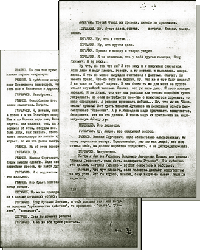
Nina Andreeva letter was published, the antiperestroika "manifesto" backed by Politburo member and chief Gorbachev rival, Yegor Ligachev. Gorbachev convened the Politburo, telling his comrades, "It is necessary to break up these nomenklaturshchiki" (party-appointed officialdom). Indeed, on the eve of the August 1991 coup, the Politburo approved a document that stipulated the dismantling of the nomenklatura system--the list of tens of thousands of party, state and social posts controlled by the party apparat. The Gorbachev who was willing to compromise with hard-liners appears elsewhere in the fond.
With the approach of the party congress scheduled for July 1990, Gorbachev came under constant pressure from hard-liners as the Politburo splintered into liberals, centrist reformers, and hard-line reactionaries. On March 22, 1990, recriminations flew between Gorbachev and Ligachev. Ligachev attacked Gorbachev's establishment of the Soviet presidency, a mechanism Gorbachev created to circumvent the hard-line party apparat. Ligachev and KGB chairman Vladimir Kryuchkov, who would lead the August 1991 coup, argued that glasnost had gotten out of hand and demanded tight control of the party press, particularly the newspapers Pravda and Izvestiya. The following skirmish ensued.
Gorbachev. Yegor Kuzmich [Ligachev], I understand that when you speak of "practical actions," then you understand remove, fire, expel.
Ligachev. Just make a decision.
Gorbachev. But we are working all the time.
Ligachev. We held the Third Congress of People's Deputies, and we did not decide anything.
Gorbachev. Well, they will hear. I think there will be meetings, interviews, scolding.
Ligachev. Well, I think that . . . [Gorbachev interrupts].
Gorbachev. Well, this is another matter.
Ligachev. I have come to a conclusion, and I am firmly convinced.
Gorbachev. I do not exclude the fact that you have a different position, Yegor Kuzmich. I see it. . . . Well, is that not so? I see it, and I have been forced to think things over. Even if I am leading a Central Committee plenum, and I am speaking, you stand and declare to me and oppose me. I, nevertheless, am forced to consider facts. This means, you have the right. Nothing is holding you back. Well, what is it that I should do? I am also not the tsar of the party. Moreover, you are not a stranger to me. This means that this is your matter. I am expressing my own opinion. I do not think that it is necessary for us to organize a crackdown or anything like it, but if it is required somewhere to ask something of communists, then it is necessary to ask. But to take a decision now . . . well, what decision will we take regarding Izvestiya? Let comrade Luk'yanov review Izvestiya at the Supreme Soviet and comrade [Vadim] Medvedev invite and interview Communists. This is how we will do it. And we will invite them for individual interviews.
Weeks later another Politburo meeting ended in a stormy row between Gorbachev and Ligachev. Frustrated over the outcome of a Politburo discussion, Ligachev asked for the floor. He lashed out, painting a picture of the party's imminent collapse, charging that it had splintered and that those who had "fought against Soviet power with weapons in hand and destroyed our people" had taken power in many regions. Ligachev's outburst continued.
I have been with the Central Committee for four or five years, and under all complexities and difficulties this Central Committee survived such that not one Central Committee failed to survive in the last forty to fifty years. And I consider it incorrect and simply impermissible to speak so about these comrades who gave their whole lives so that the homeland and the party could live. Therefore, I think that this is no less than strange and amazing.
Gorbachev answered that "wild accusations" were not needed. Another member interjected that Ligachev's remarks did not reflect "our opinion" but that of the people, implying support for Ligachev in the Politburo. At this, Gorbachev, angered, asked the Politburo "to give the entire operational work now under the Secretariat to comrade Medvedev," a loyal Gorbachev follower. This appointment presaged Ligachev's downfall at the party congress in July, where Ligachev was defeated and retired.
Fond 89 contains fascinating documents from these final months of the USSR, when the Politburo itself sensed a coming calamity. At the end of January 1991, Uzbekistan Communist Party first secretary Islam Karimov, today the president of Uzbekistan, told Gorbachev before the Politburo:
It was possible, Mikhail Sergeevich, I will allow myself to say this, not to begin perestroika in 1985. It was possible to live quietly, as they say, and in the period of stagnation to reform slowly. It might not have been necessary to stir up enormous masses of people. All would have gone on as it had, and you would have prospered, and we would have prospered. And there would not have taken place any kind of catastrophes.
Sensing the makings of what would become the August 1991 coup attempt, Gorbachev attempted to ally with the liberals and fashion a new union, but Gorbachev's policy, the Communist Party, and even the Soviet state itself were now fully discredited. The creature of Lenin and Stalin (the USSR) and the instrument they forged to rule it (the Communist Party of the Soviet Union) approached their extinction.








